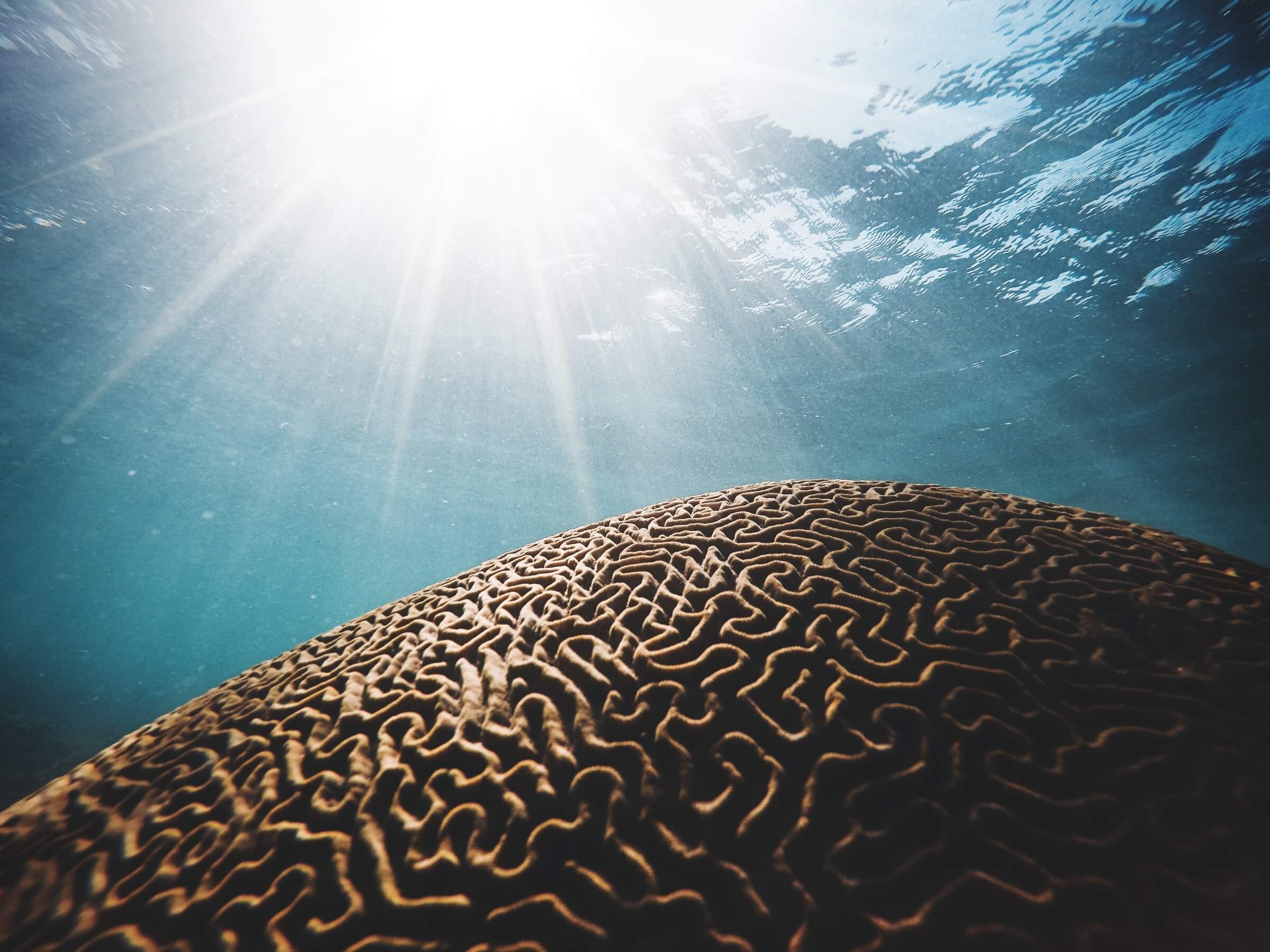What is intelligence according to science?
We live in an ever-changing environment. Perhaps we forget that, but dinosaurs experienced it badly when they got extinguished due to meteorites. Now, after Covid-19, humanity is more aware than ever of this fact.
The constant change of nature has a pretty side but also a dark side, full of dangers usually hidden. That is why the ability of organisms to adapt is critical for their survival and reproduction. If there were no rain for several weeks, elephants would have to search for water in other places where they recall water was abundant or face death. When a monkey suddenly sees an attacking tiger, it has to choose pretty fast the most intelligent strategy to escape.
When organisms are insensitive or inflexible to changes, they become bait for prey or suffer the toughness of nature. That is the reason why we, as human beings, are born for novelty, change, evolution. There is where the heart of intelligence lies.
Because not only humans, but all animals have intelligence (you can learn from in our article about the intelligence of animals). As you may be guessing by now, intelligence is the “ability to learn, adapt and solve problems and needs”.
Our growth consists basically on honing our skills to learn, adapt and solve problems. Execute tasks, understand things, plan steps. At the very beginning of our lives, as babies, we look for stimulation, moderate yes, but still stimulation. Since that is what helps babies learn and grow. Not surprisingly, the baby’s desire for stimulation has been proved by different studies (see Bornstein & Sigman, 1986) to be an early strong indicator of its future intelligence once grown up.
How can we measure then intelligence?
So now that we know psychology's definition of intelligence, the question passes on to how should we measure it. In reality, it is not very different from measuring other traits such as personality. It is all about measuring with some type of test and comparing and finding differences between persons of a given group (for example a country).
When someone is keen to discover its intelligence quotient (IQ) is because they would like to predict his or her capacity against future problems, may that be being successful at university, becoming a great scientist, or passing the admittance exams of any given company.
And that is exactly how scientists try to validate IQ tests. On the one hand, they choose which aptitude/s they are going to measure through one or more subtests. On the other hand, as they cannot measure directly someone’s ability to adapt, they need to decide which skills are highly related.
In other words, if someone lands a high score in an IQ test that should mean a high attainment in some other real-life variable. For that, the variables that until now have been used are basically academic performance, job success, or social wellbeing.
How are IQ tests built by psychologists?
Since intelligence consists of our ability to adapt, IQ tests evaluate how a person solves complex problems. They measure the capacity to learn, reason and solve complex problems.
There have been several different theories and proposals as to how to measure it. Yet it is not so important which IQ test you try. Why? Because most IQ tests produce the same or very similar results -also described as strong correlation-. Even if you do tests that measure different skills, they tend to offer the same result to the same person. A sign that they are all measuring correctly the underlying intelligence.
Some factors which scientists consider and evaluate with their tests are: which amount of information the person can process, the level of understanding of abstract information, whether irrelevant information is ignored, the capacity to execute inferences from the given information, or the ability to navigate through unpredictable or uncertain information.
Some skills have been found to be more important than others when measuring intelligence. That is the reason why some IQ tests relate better to each other than others. In general, tests of matrix reasoning, arithmetic, or vocabulary tend to have a very good relation with intelligence. This is called g-loaded aptitudes (meaning loaded by general intelligence).
By contrast, tests that focus on other skills such as memory and speed usually have a softer relation. In any case, many tests are made up of several batteries measuring different skills. By the way, you can do an IQ test with us and discover your intelligence in less than 20 minutes for a ridiculous price here.
Do intelligence and IQ tests even matter?
It does and a lot. There are several studies that give strong reasons why IQ and measuring it matters. First, the risk of school dropout is way higher for individuals with low IQ. In a society that promotes well-being, school success should be an important goal. So IQ tests will give information about the need for special learning help and avoid dropout. Actually, as we will see in the history of IQ, this is how IQ testing began.
Second, adult poverty is far more common among low IQ persons. Everything we can do to help improve their intelligence will give them new opportunities for sure. Third, low IQ persons tend to have more preventable illnesses and accidental injuries. And they also commit less to health treatments and therefore suffer more from premature death.
For these and many more reasons that you can learn more about in our article about how IQ predicts success, IQ tests are a very good tool when used appropriately. They can help detect persons with low intelligence and create the necessary conditions to allow them to thrive and avoid the mentioned risks of school failure, poverty, or health issues, among others.
IQ tests are also valuable for companies to choose the best fitting employee in the same way personality tests can ascertain if they would adapt to the company’s culture.
Is it then valid to measure intelligence? Makes sense?
In the late ’90s, the American Psychological Association decided it was time to create a task force and conclude if science was strong enough in IQ. The warfare between different psychology schools had dragged on for too long and needed to be over.
What they found was that the validity of intelligence tests was strong, even comparable to medical tests. Since IQ measuring could serve goals as interesting as understanding the potential recovery from brain injury or which skills needed to be worked on in order to gain resiliency and well-being in a clinical setting, they deemed that intelligence testing was a critical piece of science-based psychology.
Interestingly enough, the final conclusion of the task force is Braintesting’s mission. Let us quote them: “to use tests as helpful tools to furnish patients and referral sources with professional consultation” (see Meyer 2001)
Are IQ tests racially biased or unfair?
The rumors are true. Psychologists found that white people were, on average, having better results than other groups (for example black people in the United States), so they launched studies to check whether the tests were biased.
The results from highly sophisticated studies have again and again found that race was not playing a role. In fact, when measuring the groups separately, the test was equally consistent.
The causes of the differences seemed to lie however on education, income, nutrition, and health as well as expectations. When these factors were taken into account, for example comparing white and black people with equal economic status, the IQ average of both groups was similar.
Does age affect intelligence?
Yes. As we explain in our article about age and intelligence, when you look at our raw capacity for processing information, fluid intelligence, it is affected by age. After maturation, our capacity starts to decrease slowly and steadily.
However, the passing of time does not affect the learnings we gained through our experience, also called crystallized intelligence. For example, vocabulary is a typical example of crystallized intelligence. If you compare a 25-year old with a 75-year old they are not only equal but the younger is probably beaten by the older person. That is why it is so common to find pretty old university professors who are extremely knowledgeable and deemed as highly intelligent.
All in all, intelligence has turned out to be one of the most complicated and researched questions in the history of psychological science. So if you enjoyed this introduction and you want to learn more, let’s continue with the next chapter, the beginnings of IQ testing. Let’s learn how it all got started.
.png)






.png)
.jpg)

